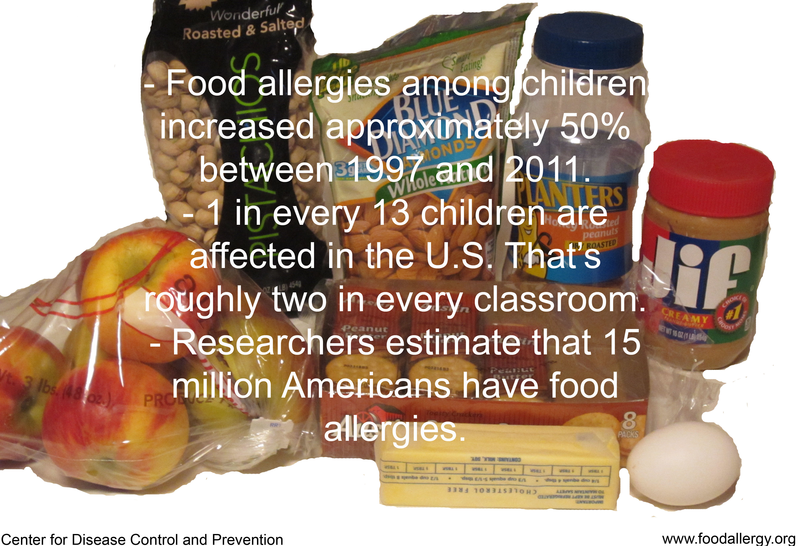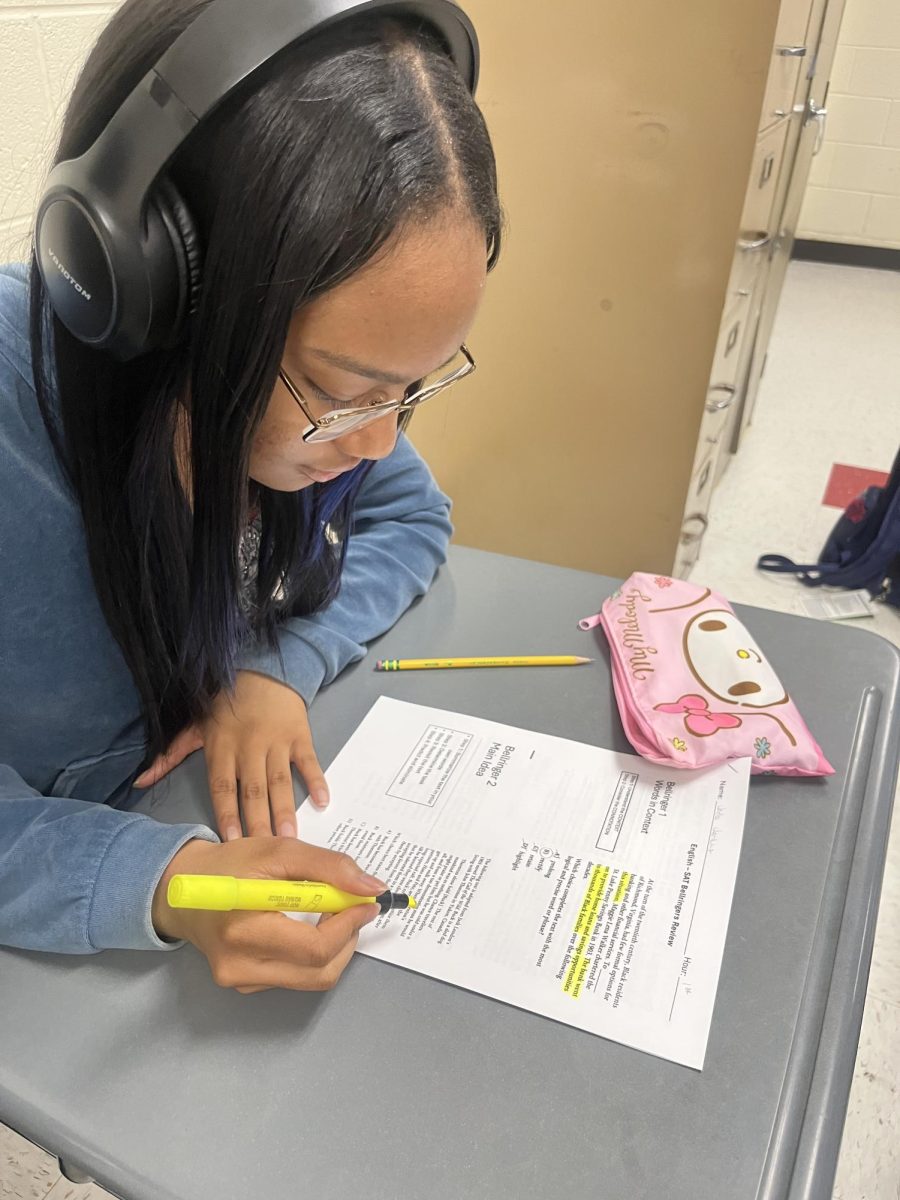Increasing food allergies affect classrooms
November 18, 2014
Senior Joe Heaton is one among the six million children in the United States who suffers from a food allergy. The teacher was handing out celery sticks with peanut butter on them in pre-school while they were having snack time, and after he ate one he broke out in an allergic reaction. The sensation of the allergic reaction had caused him to go home right away. This is when he discovered that he had a peanut allergy by simply ingesting it, instead of going to an allergist.
“I do not know if the allergy has gotten better or worse,” Heaton said, as he has not had peanut butter since that day.
During an anaphylactic reaction, IgE antibodies that sit on histamine-filled mast cells explode, which is what occurs when the body reacts to the allergen. The person suffering from the food allergy feels a sensation making that person feel hot, itchy, and feel like they are losing air. They may also break out in hives, making the body turn bright red or develop red blotches in a specific area of the body.
“After having large quantities of peanut products, I feel off,” junior Nikolai Lineberger said.
The use of Benadryl can help calm the reaction, but an injection in the thigh using an EpiPen into someone having the reaction is necessary. They should take further action by going to the hospital or Emergency room, and take the used EpiPen with them. Benadryl is an over-the-counter, oral medication for an anaphylactic reaction. Someone having the reaction should take Benadryl right away for it to take effect, and to help calm it down within a matter of a few hours. Deputy Superintendent Rebecca Vasil explained via e-mail that some classrooms within Roseville Community Schools are peanut-free rooms because of the growing number of food allergies.
Those classrooms are peanut free rooms because a student who is on that teacher’s roster has a peanut or nut allergy. For example, math teacher Kaitlin King has a sign outside of her classroom that reads: For the safety of those with nut allergies, NO nuts or products made in a factory with nuts are allowed in this classroom. Please check your labels! Principal Monica Gabriel also has a sign on her window outside of her office specifying that this is a Citrus Free Zone and a Chocolate Free Zone because of the number of kids on her roster who have those known allergies.
RCS allows students with food allergies to carry EpiPens, but they also have undesignated EpiPens on hand in case an allergic reaction were to occur. Staff and faculty have been trained to use the EpiPens in case this were to happen in the classroom, whether it is from airborne allergies or if they accidentally ingested peanut products from their food being contaminated by peanut products that were sitting on the desk previously or accidentally ingesting the product itself without knowing.
Kids with food allergies have sometimes been told by their doctors to eat the food little by little to see if the allergy will go away with time. In most cases, this does not work. Sometimes this can make the allergy worse. With age, doctors say that the allergy could progressively get better, but in some cases, it gets worse or remains the same. Lineberger found out about his allergy in seventh grade, and it has not gotten worse overtime, but has remained the same.
According to the Center for Disease Control (CDC), between 1997 and 2011, food allergies in the United States rose 50 percent. The CDC reports that four to six percent of children have food allergies and 25 percent of anaphylactic reactions occur without diagnosis. According to food allergy.org, (Food Allergy Research and Education or FARE) the “deadly disease”, affects every 1 in 13 children under the age of 18.
According to an article from Yahoo News, researchers are not sure what caused the spike in food allergies, but some say that it could be due to changes in diet, hygiene, and use of antimicrobial soap. Microbiologist and professor at New York University Dr. Martin Blaser has said that being exposed to antibiotics at an early age may also be a cause of this. The antibiotics can diminish the good stomach bacteria causing children to become more susceptible to food allergies, as well as weakening their immune systems. He warns parents that antibiotics have an effect, especially in the development of immunity in children.
According to Yahoo News, scientists have found a bacterium that can prevent food allergies in mice, known as Clostridia. This bacterium appears to reduce the chances that rodents will become allergic to peanut products, and scientists hope that this will do the same in humans. They found that giving the mice probiotics that contain Clostridia later in their life could reverse the peanut allergy, according to a report in the Proceedings of the National Academy of Sciences. However, more research is needed to be done to see if there would be the same effect in humans.




























